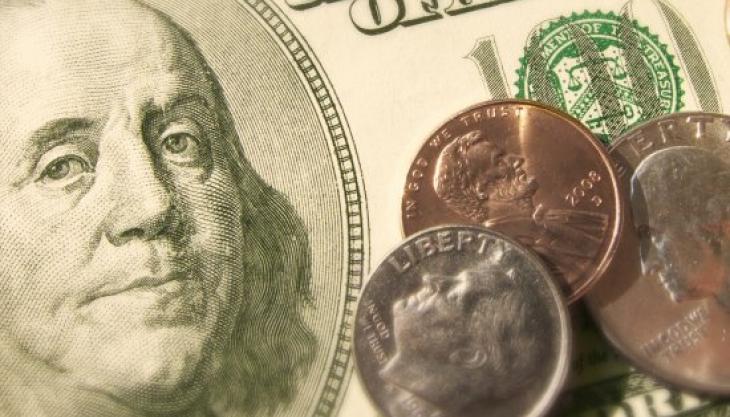Should You Refinance Your Student Loans?
Submitted by Rachel R on Fri, 10/26/2018 - 9:26am

Is refinancing your student loans a smart money move?
Image by Pictures of Money via Flickr
With rising interest rates, many student loan borrowers face increasingly more expensive student loan payments. You can lower payments by applying for an income-driven repayment plan, or you can refinance your student loans into a new loan.
Federal loan consolidation isn’t usually a solution to lower your payments. Instead, it lumps all your federal loans under one umbrella loan, but the interest rate will be the same. It simple averages your individual student loan interest and then rounds up. Therefore, consolidation won’t lower your payments at all.
The other option is to refinance your federal loans into a private loan, but there are pluses and minuses to going this route that you must carefully consider before proceeding. You’ll lose some rights but will gain some advantages, so it’s a balancing act.
How refinancing can help you
Student loan refinancing is when you apply to a lender, and they pay off your federal student loans and write you a brand-new loan. Refinancing is only a good deal if you get a lower interest rate and more affordable payments.
For instance, you might refinance for the same term as federal loans, but with lower interest, so you pay less long-term. However, in some cases, people may refinance their student loans for higher payments but for a shorter term to pay less in interest.
For example, you might have student loans with eight years of payments left, and then refinance as a private loan with lower interest under a five-year loan term for slightly higher payments. You will pay off the loan faster and for a lower overall cost to your bottom line, albeit with higher payments.
Benefits of refinancing student loans
- Lower interest rate so you pay less over the life of the loan
- Lower monthly payments (in some cases) so you have more room in your budget
- Higher payments but shorter loan term so that you’re out of debt faster
- Decreasing loan payments may allow you to get a mortgage or auto loan
What’s a good situation for student loan refinancing?
1 - If you can save money
Refinancing doesn’t make sense if it doesn't save you money. Whether or not the new loan lowers your payments, the goal should be to save on the total cost of the loan. If you won’t save money, refinancing is likely not advantageous for your circumstances.
2 - If you will qualify
Not everyone will qualify for a student loan refinance. Every lender has different criteria, but usually, you need a credit score of at least 640-650 to have a shot at qualifying. A score in the 700s is even better. Some lenders may require that you attended a Title IV accredited school.
Many lenders only approve people who graduated over ones who attended college but never completed their degree. A low debt-to-income ratio is another aspect lenders consider. If you can’t afford the loan payments, you won’t be approved, so that’s critical.
3 - If you have a stable income
You’ll need to have a steady source of income that guarantees you’ll be able to keep up with payments. For those fresh out of college struggling to find a job, this can be problematic. If you can’t afford the loan, you won’t (and shouldn’t be approved for it).
If you think you won’t be able to able to make consistent payments based on your current income, then you need to tread carefully. Consideration for refinancing means you won’t be able to enjoy income-driven repayment plans or federal student loan forgiveness.
Another option for student loans
For those with good credit and the means to make repayments, refinancing can be a great option. If you’re a student loan debtor with problems affording your payments, you might be better sticking with federal loans that have income-driven plans as well as deferment and forbearance options.
However, if you can’t afford to make any payment at all, are struggling, and your circumstances aren’t likely to change, student loan bankruptcy might be a better route to pursue. Contact a North Carolina bankruptcy lawyer with experience in student loan adversary proceedings.
To find out more, read reviews from our clients then call +1-833-627-0115. Contact the Law Offices of John T. Orcutt today for a free student loan bankruptcy consultation at one of our locations in Raleigh, Durham, Fayetteville, Wilson, Greensboro or Wilmington.
Debts Hurt! Got debt? Need help? Get started below!
Serving All of North Carolina
- Bankruptcy Attorneys Raleigh NC (North)
- Bankruptcy Attorney Fayetteville NC
- Bankruptcy Attorney Durham NC
- Bankruptcy Attorneys Wilson NC
- Bankruptcy Attorneys Greensboro NC
- Bankruptcy Attorneys Southport NC
- Bankruptcy Attorneys Wilmington NC
Bankruptcy Attorneys Raleigh NC (North)
6616 Six Forks Rd #203 Raleigh, NC 27615 North Carolina
Tel: (919) 847-9750

Bankruptcy Attorney Fayetteville NC
2711 Breezewood Ave Fayetteville, NC 28303 North Carolina
Tel: (910) 323-2972

Bankruptcy Attorney Durham NC
1738 Hillandale Rd Suite D Durham, NC 27705 North Carolina
Tel: (919) 286-1695


Bankruptcy Attorneys Greensboro NC
2100 W Cornwallis Dr. STE O Greensboro, NC 27408 North Carolina
Tel: (336) 542-5993

Bankruptcy Attorneys Southport NC
116 N Howe St. Suite A Southport, NC 28461 North Carolina
Tel: (910) 218-8682

Bankruptcy Attorneys Wilmington NC
116 N. Howe Street, Suite A Southport, NC 28461 North Carolina
Tel: (910) 447-2987
